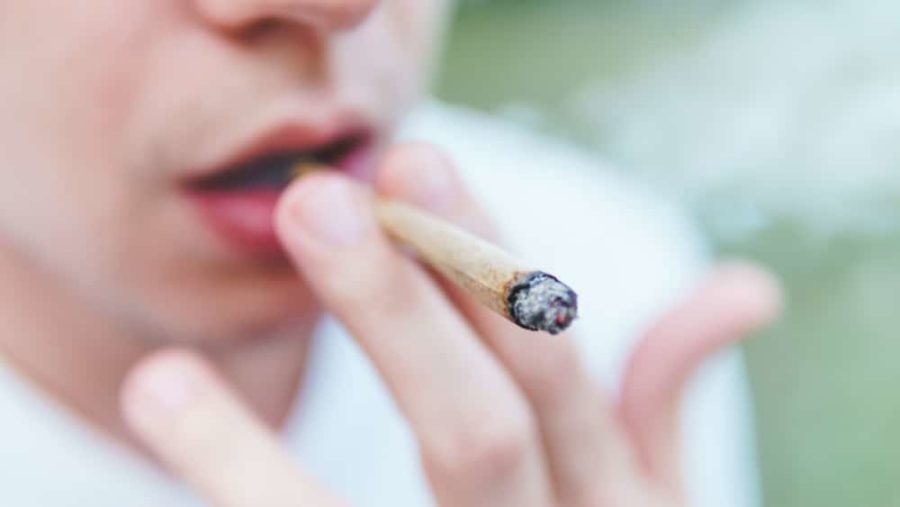
California legalizes smokable hemp and food sales in historic law
California Governor Gavin Newsom today signed Assembly Bill 45, which sets out a comprehensive regulatory framework for the manufacture and sale of hemp products in the state, including smokable hemp and hemp-infused foods and beverages. As an emergency law, the draft law comes into force immediately.
While CBD products are freely available in stores, they are considered “adulterated” under applicable California law as defined in the Sherman Food, Drug and Cosmetic Law. What AB-45 will do is create clarity for the hemp industry – more importantly, reassure hemp consumers that products are independently tested and properly labeled.
EcoGen BioSciences, recently acquired by Kadenwood Brands, is the “largest supplier of hemp raw materials in the industry” and has been severely affected by the new regulations. “AB-45 provides a model for hemp frames in the United States that we believe is necessary to move the industry forward,” Garrett Bain, president of EcoGen BioSciences, told High Times. “With California taking the lead in clarifying requirements for hemp in food and supplements, we expect other states to adopt this model as well. These requirements, which include labeling, serving size, testing regulations, and sourcing, will enable hemp products to gain mainstream legitimacy and increased security. Only through regulatory consistency will we see this industry grow to eliminate unlicensed and potentially harmful products from non-compliant manufacturers. “
Other hemp leaders also celebrated the bill. “California has led the industry in both cannabis and hemp over the years, but not without its flaws and challenges,” Blake Schroeder, CEO of Medical Marijuana, Inc. told The High Times. “As pioneers of the legal hemp industry in California, we’ve seen the many back and forth debates surrounding hemp and CBD, even after state legality was outlined in the 2018 Farm Bill. We welcome AB-45’s new focus on security and consistency. Our company developed many of the testing standards that most large companies in the industry still use today. We hope this bill will help weed out the companies that sell counterfeit or mislabeled products. ”Medical Marijuana, Inc. is a holding company with subsidiaries that manufacture a wide range of hemp-based products.
The California Cannabis Industry Association (CCIA) released an updated update earlier this morning warning cannabis business owners who will inevitably be hit by the news. Assembly Bill 45 explicitly allows the sale of hemp-derived extracts that meet testing and labeling standards – especially CBD.
“We cannot thank the author enough for her tireless and unparalleled work in bringing about comprehensive cannabis regulations,” said Lindsay Robinson, executive director of the CCIA Assembly. “Aguiar Curry is steadfast in its approach to level the playing field between cannabis and hemp while protecting the health and safety of all Californians.”
Robinson continued, “AB 45 provides a long overdue comprehensive framework for the manufacture and sale of hemp products in California, but our work is not finished yet. We look forward to working with the author on future legislation to pave the way for hemp into the cannabis supply chain. “
Politico described the dynamism of the bill as the end of the “Wild West Era” of CBD. Here’s why it matters: The California CBD market reached $ 730 million in sales in 2019 – two and a half times more than any other state.
The bill was drafted by MP Cecilia Aguiar-Curry, Representative of California’s 4th Congregation District. “The product is everywhere. You can go into a world market, a health food store, a pet store and see CBD there, ”said Aguiar-Curry. “There is no label, it doesn’t tell you if it’s safe. So I want to make sure that people know what they are buying. “
A number of mishaps with mislabeled CBD products in various states – some with alarming results – have underscored the urgent need for better regulation. For example, a sample from the Minnesota Hemp Farmers and Manufacturers Association (MHFMA) found that over two-thirds of CBD products differed from the information on the labels. If a product has a CBD content of more than 20 percent from what is stated on the label, the US Department of Agriculture (USDA) can classify it as “misbranded”.
JD Supra Reports that Hemp Manufacturers Must Register with California Department of Public Health (CDPH) and Adhere to Good Manufacturing Practices (GMP); Test extracts to ensure that total THC does not exceed 0.3 percent and maximum pollutant concentrations; Link product labels to laboratory test results for THC to avoid unproven health claims; demonstrate that their hemp is grown in a state or country that has an established industrial hemp program.
Last but not least – hemp manufacturers must avoid marketing to children or pregnant women.
Food and dietary supplements fortified with hemp must be properly sourced and must not be included with alcohol, tobacco, or nicotine.
CDPH is in charge of regulation and could do anything from regulating maximum portion doses to setting tracking standards. The bill also instructs CDPH to investigate the introduction of hemp-derived cannabinoids into the cannabis supply chain.
The regulations apply to food made from hemp, beverages, food supplements, cosmetics, pet food and inhalation products. Interestingly, inhalable hemp products can be made and sold outside of California, but cannot be sold within California until a tax is in place.
Once the federal law on hemp products is clarified, new regulations are likely to be enacted as it would be necessary to comply with federal law.

Post a comment: